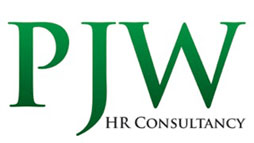Managing conflict within teams is one of the areas that managers can find difficult to deal with. Driven very often, by not only the time these situations can take to resolve but also the lack of confidence in having the required skills to handle them effectively. One thing is for sure, it doesn’t go away. If not dealt with in a timely manner it can lead to relationships breaking down completely.
Team alignment can break down very quickly. Employees no longer speak to each other, productivity dips, customer service is impacted, and business suffers. So, how can you best respond? Luckily, we’re giving away 7 tips for effective conflict resolution.
1) Respond Appropriately

From a business owner or manager’s perspective, conflict usually arises at an inconvenient or busy time. Whilst it may seem appropriate to put this into the ‘too difficult – deal with it later’ pile, conflict doesn’t go away and can exacerbate over time. As this point, a manager is seen as the person who must deal with this. Ensuring that you respond swiftly is paramount, but your response must be fair and appropriate to the situation, which requires confidence and patience.
2) Don’t Allow Triangulation
Triangulation is when those involved in a conflict do not speak to each other and vent frustrations to others. This is why it’s important to tackle the conflict before it escalates. Triangulation often causes conflict to worsen and, ultimately, is unproductive as it causes additional relationship strains between employees that takes the focus away from resolving the primary issue.
3) Conflict Does Not Mean Failure
Employers/ managers will often view conflict as an organisational or personal failure. However, we are all human and we all regress and disagree with others from time to time. Very often on the surface, these matters may appear in the bigger scheme of things to the onlooker as trivial to the individuals involved they never are. Take time to get to the root cause – conflict is positive, it usually means something needs to change – understand it.
4) Enable Your Employees to be Specific
Sometimes those involved in conflict want others to magically know what is important to them and what they need in order to feel more comfortable. This is normal yet can seem irrational. Create the right environment and culture to enable open dialogue
5) Promote Open-Mindedness
It’s important that once this conflict is resolved, it does not remain in the background and so promoting that your employees hit their psychological ‘refresh’ button is very much recommended. If a stalemate is reached, it’s important that each party goes away and reflects on their relationship with the other person from a renewed perspective.
6) A Learning Experience
For everyone involved, conflict can be exhausting emotionally, and it is easy to become frustrated that an issue occurred in the beginning. However, reflecting on the lessons that have come out of it are important. A lot of the time, it’s a great way to improve workplace relations and those who have overcome conflict often become much closer colleagues who manage their own conflicts and restore healthy working relationships.
7) Learning to Resolve is Lifelong
The great thing about effective conflict resolution is that, as a manager or owner, you can learn from it too. You can find out what strategies work, what doesn’t work and how you can solve conflict in the future. Everybody is a work in progress, and so, although it’s not always easy, the more you develop your skills in conflict resolution, the more comfortable you will feel in dealing with it.
You can find more information about effective conflict resolution and details of our dedicated conflict resolution training course here. Or you can check out our previous blog, ‘Conflict in the Workplace’ https://www.pjwhrconsultancy.com/conflict-in-the-workplace/
